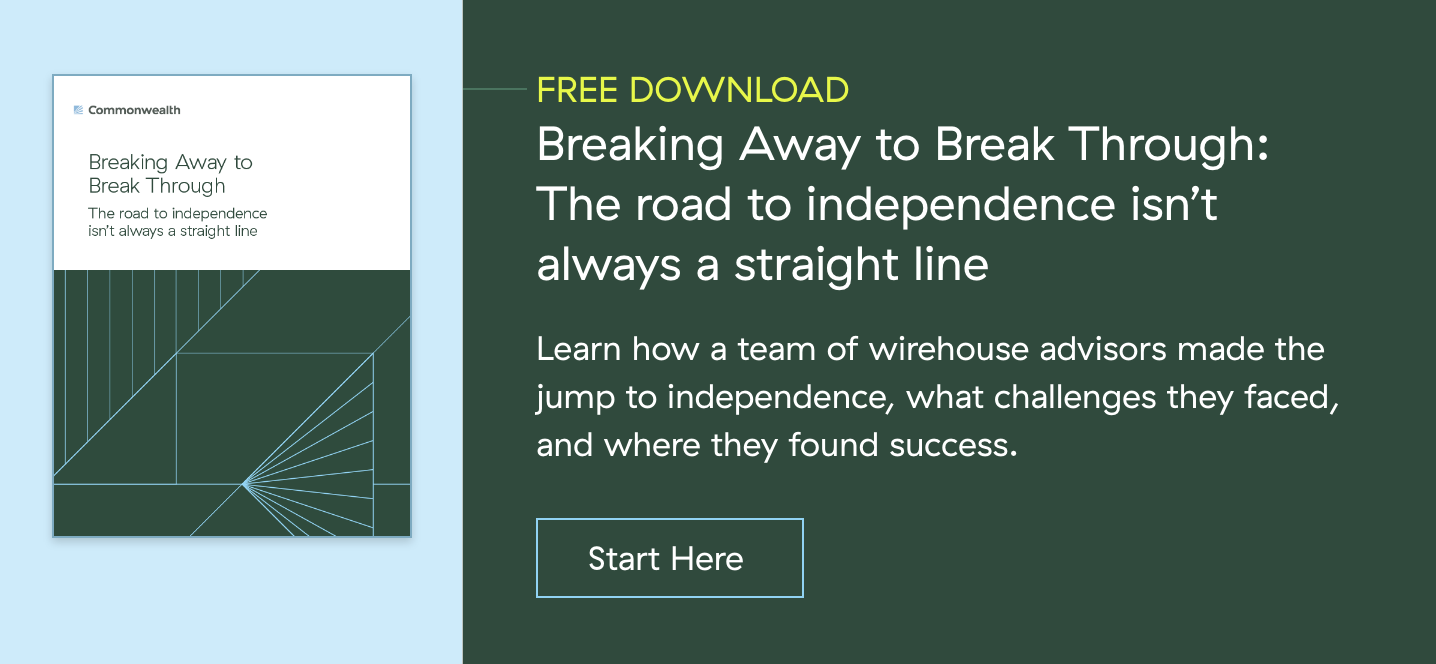 Financial advisors rely on their relationship with their broker/dealer for a variety of functions, from back-office support to practice management, but there’s a difference between broker/dealers that provide a service and those that allow you to elevate your practice and grow your business. If you’re considering switching firms—and especially if you’re making a move from the wirehouse to the world of independence—choosing the best broker/dealer means looking beyond a big name, shiny sign-on bonus, and slick marketing to consider the importance of fit.
Financial advisors rely on their relationship with their broker/dealer for a variety of functions, from back-office support to practice management, but there’s a difference between broker/dealers that provide a service and those that allow you to elevate your practice and grow your business. If you’re considering switching firms—and especially if you’re making a move from the wirehouse to the world of independence—choosing the best broker/dealer means looking beyond a big name, shiny sign-on bonus, and slick marketing to consider the importance of fit.
Unsure where to start? Ask yourself the following questions to help you decide if a firm partner is the best choice for you, your business goals, and your clients.
Start by examining your personal and professional goals. Do you want more trust and freedom from your broker/dealer so you can provide your clients with more creative solutions? Is your focus on holistic financial planning rather than on chasing the index? Is having the autonomy to make business decisions a new priority? Beyond the services a firm partner will offer you, the best broker/dealer for you will have a corporate philosophy and culture supportive of the kind of business you’re building and who you are as an advisor.
How will you know? If you have an opportunity to visit the home office, pay close attention to how you and your staff are treated and how home office staff interact with one another. Look for the little intangibles—prompt and transparent replies to your questions, open access to leadership, a collegial environment—that reveal whether what’s touted in the marketing brochure is true. Talk to other advisors—both recently transitioned and those who have been around a while—to get to know the community of professionals you’d be joining.
Financial advisors want a broker/dealer that has the heft, scale, and tools to help them run and grow their business. At the same time, the ever-changing landscape of the financial services industry has created a need for broker/dealers to be able to pivot as regulations or technology evolve. As you’re interviewing potential firm partners, ask how changes are examined and implemented. Perhaps most important, find out how advisor feedback figures into important firm decisions.
How will you know? Look for opportunities for affiliated advisors to provide their feedback, and ask how that feedback is triaged and acted on, as well as who is listening. Are you sending an email to a general delivery inbox or do you have direct access to the firm’s CEO? How much input do advisors have with the technology tools and resources offered? Look for a firm that values your suggestions and builds infrastructures with advisors in mind.
From day-to-day operations like opening accounts, to communicating with your clients, to navigating compliance questions or technology issues, how does the firm’s advisor support stack up? How will the firm’s policies help you run your business more efficiently, and how does it put time back in your day?
How will you know? Firms that prioritize the advisor experience will prioritize accountability and ownership over that experience. Look for policies that are flexible and firm staff who are collaborative and empowered. Make a list of the items that consume most of your or your staff’s time and see how a potential firm can help you introduce efficiencies and automate processes so you can spend your time with clients.
Want to learn more about the importance of fit? Read our case study about Cottonwood Capital Advisors, who broke away from their nationally recognized wirehouse only to find that not all independent broker/dealers are created equal.






